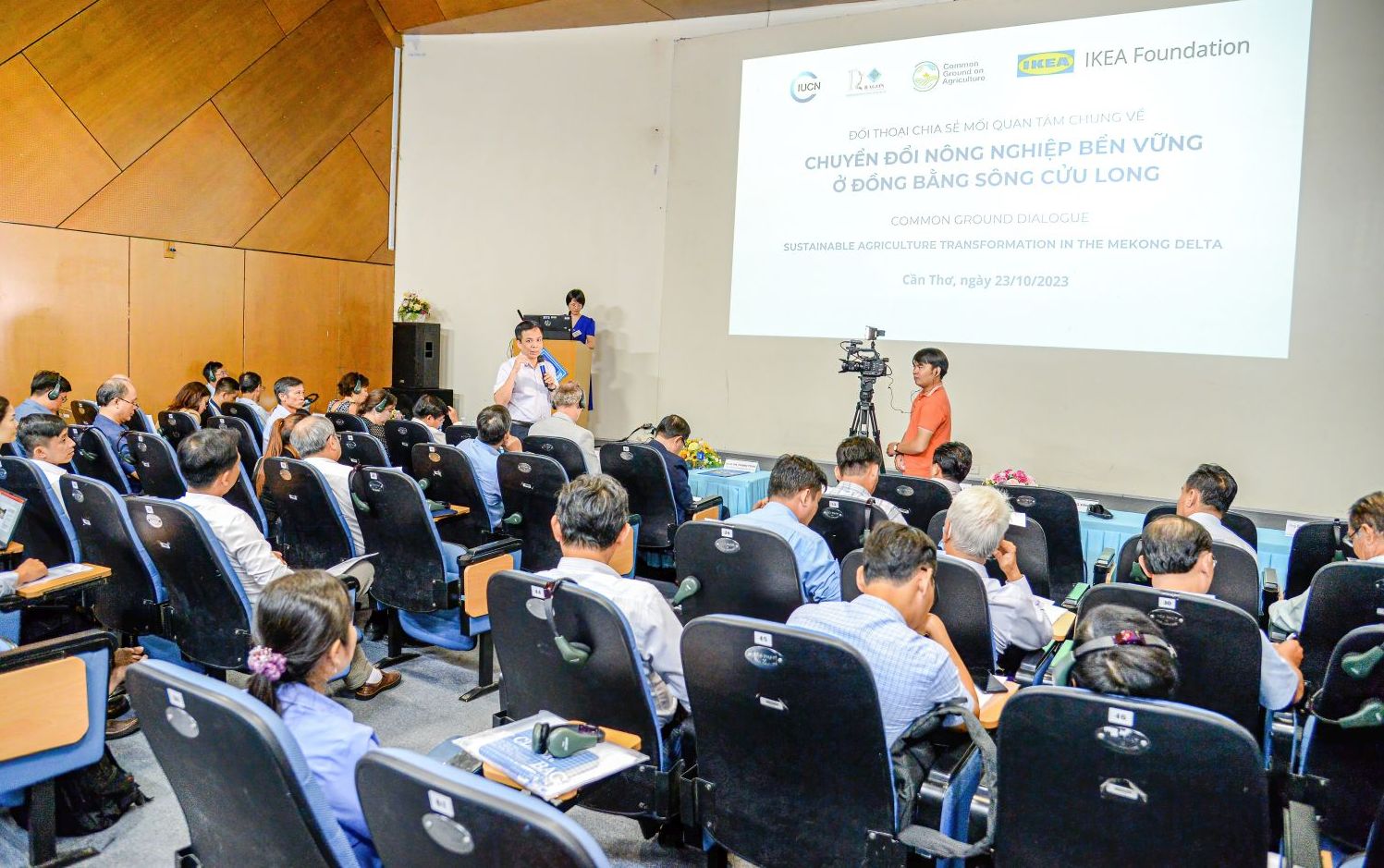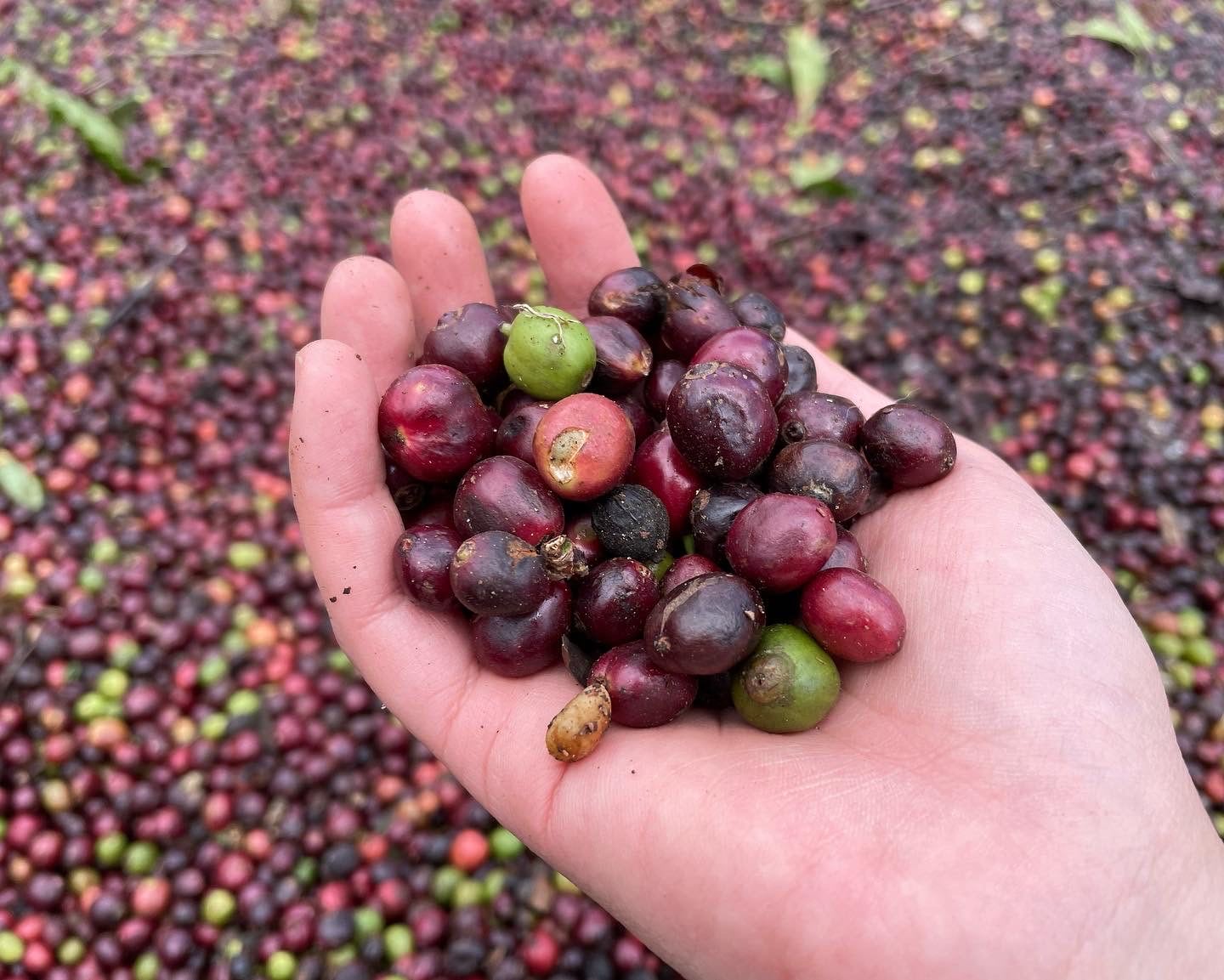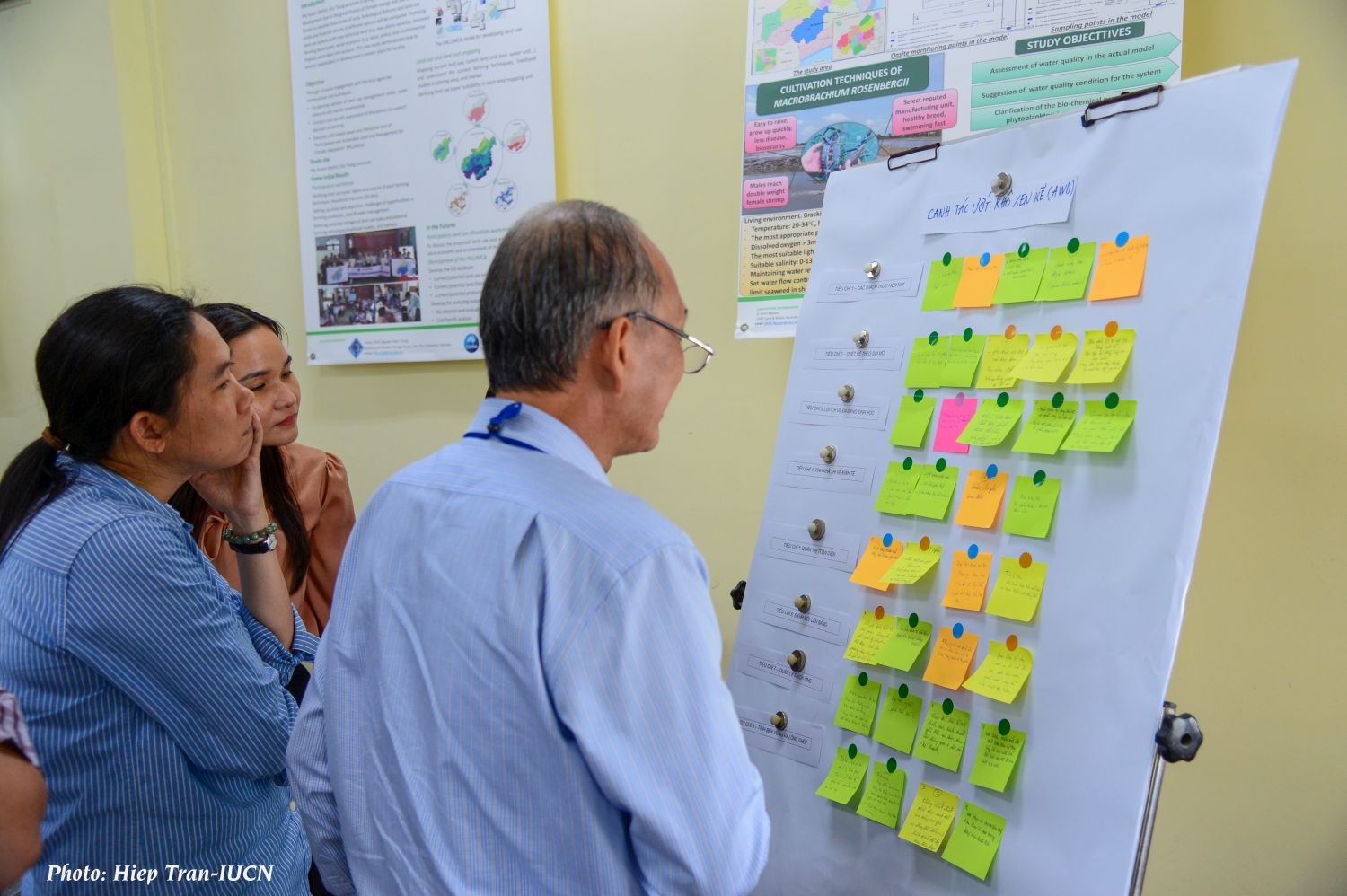Common Ground dialogue on agricultural transformation in the Mekong Delta
The Mekong Delta is highly vulnerable to flooding, droughts, and sea level rise. The situation is aggravated by high dikes, canals, sluice gates, and other water control infrastructure built for intensive rice production. This has caused large-scale soil fertility loss, eutrophication of water bodies, deforestation, and pesticide pollution.
Government Resolution 120 in 2017 and Party Resolution 13 in 2022 provide the legal basis to transition from intensive rice to higher flood-based-agriculture. These resolutions open the door for opportunities to improve land health for the benefit of people and biodiversity. Yet, major challenges remain in moving farming in the delta to a more sustainable footing.
To address agricultural transformation challenges globally, IUCN is implementing the IKEA Foundation’s Accelerating the global transition to sustainable agriculture in Burkina Faso, Guatemala, India, Rwanda, Tanzania, and Viet Nam. The initiative aims to “accelerate action for mainstreaming land health in sustainable agriculture, as a Nature-based Solution (NbS) to food and water insecurity, climate change and other societal challenges”.
Through the project, IUCN is organising a series of multi-stakeholder “Common Ground” dialogues to stimulate exchange and arrive at a common understanding of the importance of soil health as the basis for sustainable agricultural transformation.
On 23 October 2023, IUCN and Can Tho’s DRAGON Institute organised a Common Ground dialogue in Can Tho, Viet Nam. The dialogue included a plenary session and break-out groups to discuss the challenges for sustainable agriculture in the Mekong Delta and possible solutions.
The dialogue was followed by a 1-day introduction to IUCN’s Agriculture Guidance for NbS and training on land health indicators. These indicators including above and below ground biodiversity on-farm and habitat condition and connectivity off-farm.
 Photo: Dr. Tran Dai Nghia - ISPARD/MARD - discussed at the CGD © IUCN Viet Nam
Photo: Dr. Tran Dai Nghia - ISPARD/MARD - discussed at the CGD © IUCN Viet Nam
Land health is a major concern in the Mekong Delta where intensive rice farming has disrupted the natural flood pulse and caused serious surface water pollution. Post-Resolution 120, farmers are transitioning from three rice crops to one or two crops of rice plus a flood-based crop. But this process is challenged by a declining and unstable flood season, the result of upstream water retention and more erratic rainfall. And businesses struggle to scale up flood-based crops because of low-quality infrastructure and weak demand. Labour is another problem because of high levels of youth outmigration.
At the dialogue, participants made many recommendations:
- Partially remove dikes to support traditional eco-rice production
- Focus on high quality crops
- Integrate multiple values into flood-based agriculture
- Transform to eco-crops (mangrove shrimps, shrimp-coconut) and organic production
- Set up sustainable value chain and link with businesses
- Issue investment policies to support start-ups, agricultural insurance, stabilize market prices
- Share the water resources with upstream
- Upgrade the hydro-meteorological, forecasting system
- Apply agricultural mechanisation.
 Photo: Local farmers produce traditional products from bulrush in shrimp ponds in Phu My, Kien Giang Province © MCF
Photo: Local farmers produce traditional products from bulrush in shrimp ponds in Phu My, Kien Giang Province © MCF
Participants also proposed a comprehensive reassessment of the natural and socioeconomic conditions in the Mekong Delta as basis for transformation policy. Existing government maps no longer accurately reflect the real conditions.
Major financing for agricultural transformation in the delta will come from the World Bank’s $300 million Mekong Delta Climate Change Adaptation Project (MERIT). Because loans can only finance infrastructure, IUCN, with WWF assistance, is leading preparation of a $25 million GCF proposal that will provide complementary grant funding for the research, capacity building, and other “soft” infrastructure needed to make best use of the World Bank loan.
Together with ICEM and UNEP, IUCN is a partner in the SNV-led IKI Viet Nam Adaptation in Agriculture through Private Sector Transformation (VN-ADAPT), which will support private sector investment in NbS in the delta. VN-ADAPT will also help test and institutionalize within government Other Effective area-based Conservation Measures (OECMs), a new designation to recognise well-managed natural and semi-natural landscapes outside of the national protected area system.


